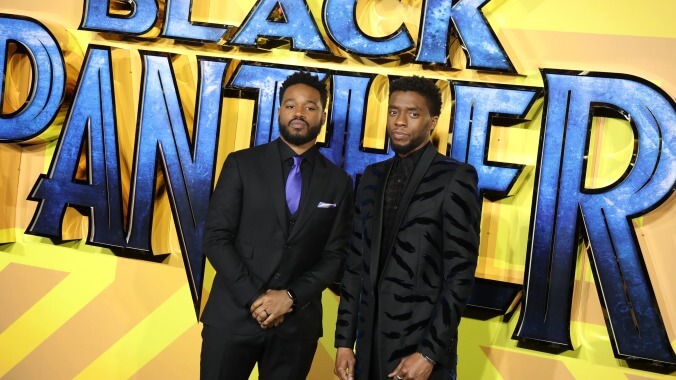Black Panther's Ryan Coogler shares touching tribute to Chadwick Boseman

Since Chadwick Boseman’s death on Friday after a largely secret four-year battle with cancer, countless people who either knew or him or simply respected his work have spoken out about the enormous impact he had—not just through his work as an actor but through his action as a person and what his work and actions represented. Now, Black Panther director Ryan Coogler has shared a statement of his own, and it features even more fascinating insights into who Boseman was as a person and how he shaped the Marvel Cinematic Universe’s interpretation of T’Challa and the Black Panther movie itself.
The entire piece is worth reading, and you can read it in its entirety over at Deadline, but it’s particularly interesting to see just how thoughtful Boseman was about his portrayal of T’Challa even from his very first scenes in Captain America: Civil War. Coogler, who came on board to make Black Panther after Boseman had already been cast in Civil War, says he knew he wanted to make his movie from the moment Boseman has his first scene with John Kani, playing his father T’Chaka. After previously talking to Scarlett Johansson’s Black Widow in English with an African accent, Boseman and Kani begin conversing in Xhosa, Kani’s native language, which Coogler learned later was a decision made by Boseman on the spot. In other words, he learned his lines in a different language that day, establishing that Xhosa would be the official language of Wakanda and setting up how their “dialect had not been conquered by the West”—which shaped virtually all of the dialogue in Black Panther.
Coogler seems to have many, many stories like that, like Boseman suggesting that the people of Wakanda should dance during a ceremony, because otherwise “what separates them from Romans?”, or recommending a change to Killmonger’s death scene (which originally involved him dying and being buried in Wakanda). Coogler goes on to say that he spent the past year developing Black Panther 2 and writing words for Boseman to say that “we weren’t destined to see,” and he says he’s “broken” about knowing that he won’t get to work with him again—but, adding, “it hurts more to know that we can’t have another conversation, or facetime, or text message exchange.” Apparently Boseman had been sending vegetarian recipes to Coogler family during the pandemic and would periodically check in on him, which is hardly surprising given everything we’ve seen and heard about Boseman.
Here are Coogler touching final thoughts:
In African cultures we often refer to loved ones that have passed on as ancestors. Sometimes you are genetically related. Sometimes you are not. I had the privilege of directing scenes of Chad’s character, T’Challa, communicating with the ancestors of Wakanda. We were in Atlanta, in an abandoned warehouse, with bluescreens, and massive movie lights, but Chad’s performance made it feel real. I think it was because from the time that I met him, the ancestors spoke through him. It’s no secret to me now how he was able to skillfully portray some of our most notable ones. I had no doubt that he would live on and continue to bless us with more. But it is with a heavy heart and a sense of deep gratitude to have ever been in his presence, that I have to reckon with the fact that Chad is an ancestor now. And I know that he will watch over us, until we meet again.